Monarchy-DefinitionA monarchy is a system of administration where the monarch serves as the head of state throughout life or until they abdicate. In absolute monarchies, the monarch has a complete dictatorial power over the administrative, legislative, and judicial branches of government. In constitutional monarchies, the monarch's political legitimacy and authority are more limited and mostly symbolic. 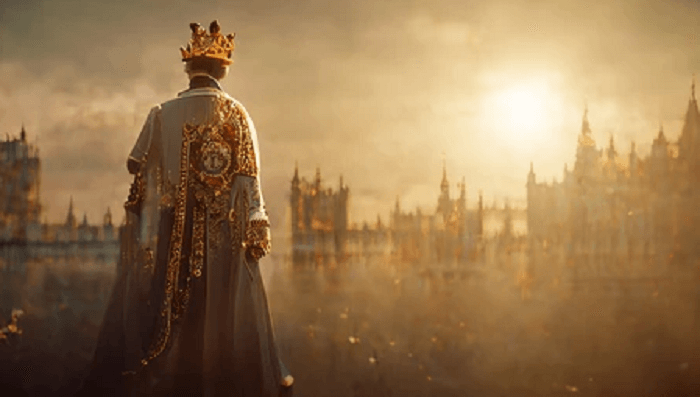
In numerous instances, the succession of kings and queens has been hereditary, frequently resulting in dynastic eras. However, monarchy that are elected and self-declared have also existed throughout history. Although they are not innate to monarchies, aristocrats frequently serve as the pool of candidates from which the king is selected and as the members of the institutions that make up the monarchy (such as the diet and court), providing many monarchs' oligarchic features. MeaningMonarchy, a kind of government in which one person has unbroken sovereignty or authority. The word refers to countries where the monarch, a unique ruler who serves as the head of state and is installed in that position by birth, holds the highest authority. Only male succession, often from father to son, is permitted in the majority of monarchies. The term "monarch" (Late Latin: monarchia) is derived from the Ancient Greek word mon�rkhs, which is made up of the words m�nos, "one, single," and "to rule". It made reference to one, if not truly absolute, then at least formally so. Since elective monarchies are very uncommon, the term "monarchy" as it is used today often refers to a conventional system of hereditary authority. 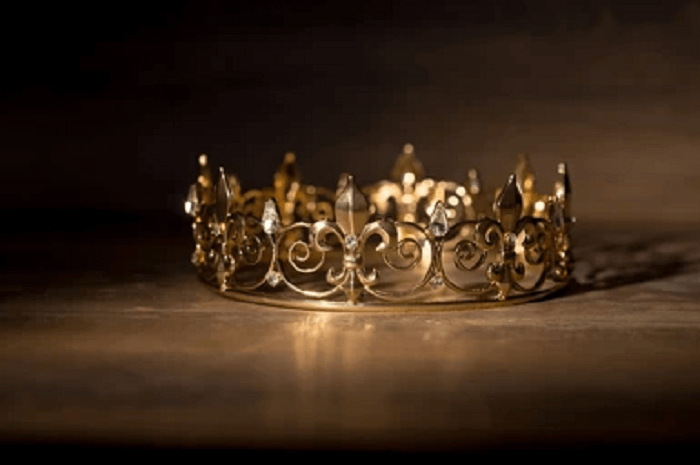
Emperors, Empresses, Kings, and Queens are some examples of titles given to monarchs. Through personal relationship with the monarch, monarchs can create federations, personal unions, and kingdoms with vassals, which is a typical explanation for why kings hold many titles. Up to the 20th century, republics had largely superseded monarchy as the most prevalent type of governance. HistoryNowadays, the phrase is used to describe nations with hereditary monarchies. The monarch was the perfect leader of the emerging nation-states in the 16th and 17th centuries because of his practically limitless authority (see absolutism), while in Britain, the Parliament was able to impose restrictions on the sovereign's right to do as it pleased, notably because of the Magna Carta (1215) and the Bill of Rights (1689). The belief of the divine right of kings (see divine kingship), as practiced by Louis XIV, brought to an end the age-old notion that the monarch symbolized (within the confines of his dominions) God's authority over all things. By becoming "benevolent despotism," as shown by Catherine II of Russia's rule, monarchical absolutism adjusted to the Enlightenment. 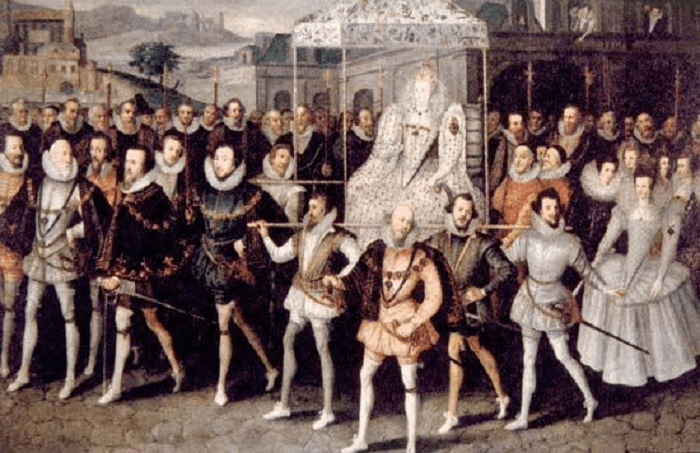
Absolute monarchy was given a fatal blow by the French Revolution, and what was left of it was effectively destroyed by World War I, for which Russia, Germany, and Austria-Hungary's leaders were held accountable as well as for the suffering that ensued after the conflict. Although absolute (or almost absolute) monarchies still exist in the Middle East, the institution evolved into the constitutional monarchy in western Europe. Role of MonarchyThe Monarch is Head of StateThe King does not exercise absolute power, but he does reign. His government is in charge of making decisions, and the King of the United Kingdom is legally required to abide by their recommendations. He appoints the Prime Minister and all other ministers, convenes fresh sessions of parliament, and bestows the royal assent, which declares a piece of legislation as having passed the legislature, on those who have been elected to that body. The King also presides over the Privy Council's monthly sessions to approve Orders in Council, receives arriving and outgoing ambassadors, and appoints a number of other officials, including top judges, although in all of these cases, he follows the government's recommendations. He meets with the prime minister once a week, and he is given boxes of official documents to sign and information every day. Additionally, he often meets with various types of top authorities. 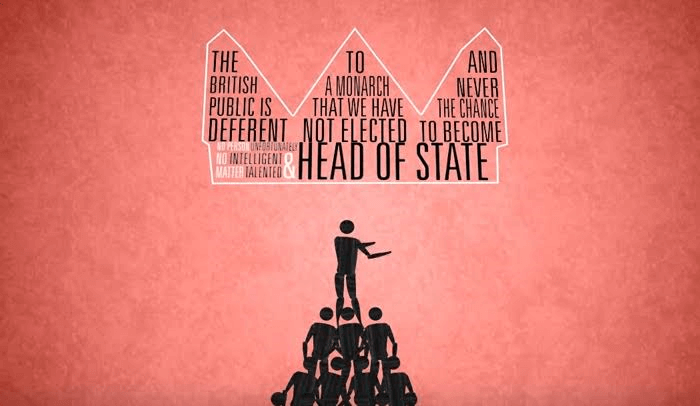
The Monarch is Also Head of The NationThe King's expanded position as the leader of the country makes him more noticeable to the general populace. In this function of formal recognition, the Sovereign serves as a focal point for national identity, solidarity, and pride, imparts a feeling of stability and continuity, encourages the notion of volunteerism, and more. This role has been carried out through speeches, such as the Queen's address to the nation at the beginning of the Covid pandemic and the annual broadcast on Christmas Day; through awards to recognize public and voluntary service; and through visits to the armed forces, educational institutions, medical facilities, non-profit organizations, and neighborhood businesses. 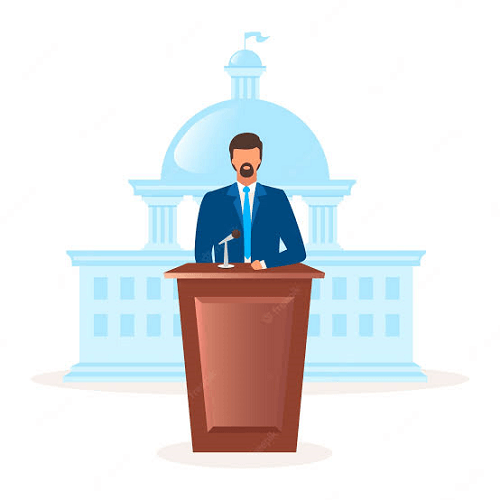
A total of 3,567 public appearances were made by 15 members of the royal family in 2019, including the Queen who made little under 300 and Prince Charles who made 520. These can be national events like attending the Cenotaph on Remembrance Day or Trooping The Colour, but the bulk of them are trips throughout the UK to honor and support regional public services and non-profit organizations. More than 1000 charities and groups in the UK and the Commonwealth are supported by the King and other members of the royal family. Types of MonarchyThe type of monarchy varies based on the kingdom, time era, and ruler. In the Holy Roman Empire, for instance, an emperor was chosen by the princes and crowned by the Pope in the thirteenth century. The son of King Henry VIII would rule England in the sixteenth century. When that son, Edward VI, passed away too soon, his sister Mary I took the throne. The monarch's primary duties included ruling and safeguarding the populace. Possibly, this refers to defending their souls or avoiding harm from a rival country. While some tyrants were rigorous and required obedience from their subjects, others were less stern. Let's study the constitutional and absolute monarchies in more detail. I. Constitutional Monarchy"A sovereign who reigns but does not rule." -Vernon Bogdanor A king or queen who has less authority than the legislative branch is known as a constitutional monarchy; in Japan, this is the emperor. The ruler possesses authority, but he or she is unable to enact laws without the consent of the ruling body. The royal title is inherited from one generation to the next. Everyone in the nation, including the monarch, would be required to abide by the constitution. Elections are held for the legislature, which can adopt laws under constitutional monarchy. 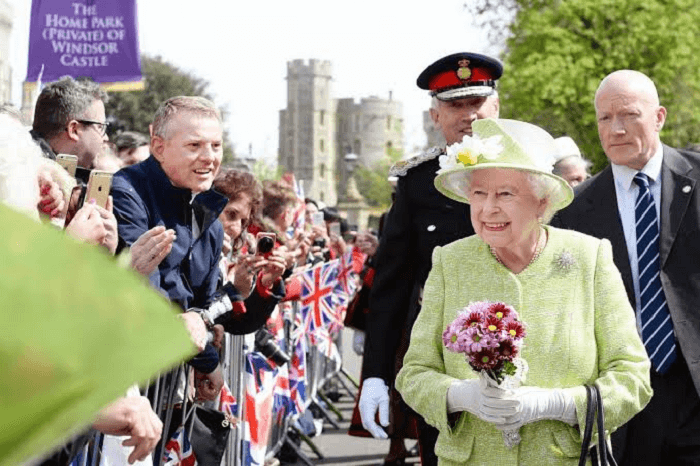
II. Absolute MonarchyAn absolute monarch has total authority over both the populace and the government. They must wrest this authority away from the church and nobility in order to get it. Absolute rulers held to the concept of divine right. To oppose the monarch was to oppose God. 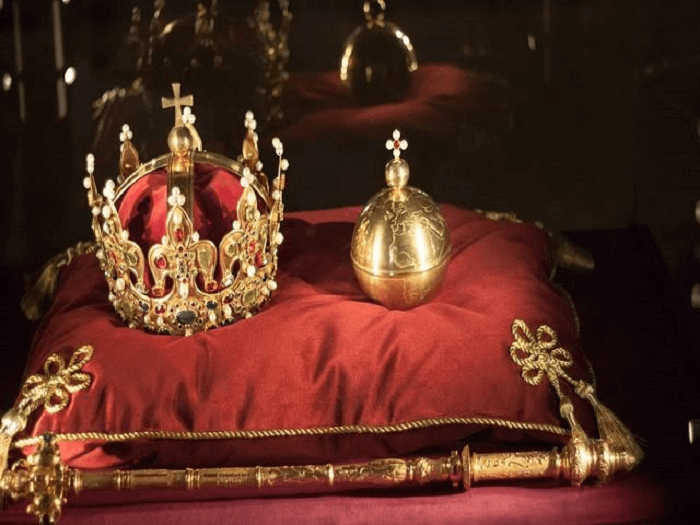
The monarch would install bureaucrats in their stead in order to usurp the power of the nobles. Because the monarch was paying them, these government representatives remained faithful to him. To prevent dissidents, monarchs wished for a single religion throughout their realms. Different religious adherents were executed, sent in prison, compelled to convert, or banished. Another type of monarchy is the commonwealth realm. III. CommonWealth RealmA sovereign state that shares its monarch and head of state with other Commonwealth realms is known as a Commonwealth realm. All of the Commonwealth's kingdoms and countries are sovereign, independent states. After Queen Elizabeth II's passing on September 8, 2022, King Charles III became the ruler of every Commonwealth realm. He assumed the Commonwealth's leadership at the same time. 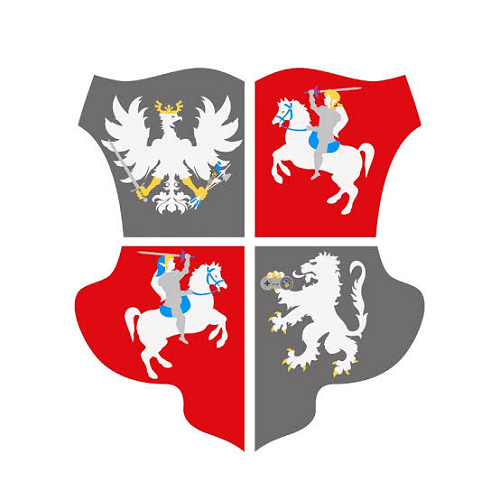
Papua New Guinea, Antigua and Barbuda, Australia, The Bahamas, Belize, Canada, Grenada, Jamaica, New Zealand, Saint Kitts and Nevis, Saint Lucia, Saint Vincent and the Grenadines, Solomon Islands, Tuvalu, and the United Kingdom are among the 15 Commonwealth nations as of 2023. All of them are Commonwealth members, a 56-member intergovernmental organization that includes 52 former British Empire countries and 52 independent nations. Regardless of whether they are Commonwealth realms or not, all members of the Commonwealth are sovereign, independent states. At the time of her coronation in 1952, Queen Elizabeth II was the ruler and head of state of seven sovereign nations: the United Kingdom, Canada, Australia, New Zealand, South Africa, Pakistan, and Ceylon (now Sri Lanka). Since then, former colonies and dependents have gained their freedom, and some kingdoms have evolved into republics. The most recent kingdom to do so, on November 30, 2021, was Barbados, which became a republic in 2023. Monarchy TodayToday, constitutional monarchy will make up the majority of dynasties. Constitutional monarchies include the British Commonwealth, Spain's Kingdom, and Belgium's Kingdom. They have a team of elected officials that are in charge of taxation, legislation, and government administration. Only a few absolute monarchies are in existence today, including the Sultanate of Oman, the Nation of Brunei, and the Kingdom of Saudi Arabia. These countries are ruled by a sovereign who has unrestricted power over their institutions of government and populace. Absolute monarchs, as opposed to monarchs with a constitution, do not require the consent of an elected body before assembling an army, declaring war, or enacting laws. Monarchies in EuropeEurope's kings, queens, princes, princesses, dukes, and duchesses are frequently well-known people who host lavish castle homes and fantasy weddings. They held power for centuries, but many of them were overthrown in the early 20th century, particularly after the First World War when democratic ambitions were fulfilled. The supremacy of parliaments undermined the kings' and queens' divine right, which resulted in great aristocratic families either losing influence or simply dying out. Nevertheless, royal culture continues to exist in Europe. AndorraBetween Spain and France in the Pyrenees mountain range sits the landlocked nation of Andorra. One of Europe's tiniest nations, it will have a population of 79,034 in 2021 (estimated), inhabiting a territory of around 468 square kilometers. It is one of Europe's oldest nations, the Principality of Andorra. But due to its long isolation, it had little in common with the rest of Europe's history until relatively recently and had close relations only to France and Spain. Since the 1970s, it has been gradually opened up to the rest of Europe through growth in tourism and telecommunications. 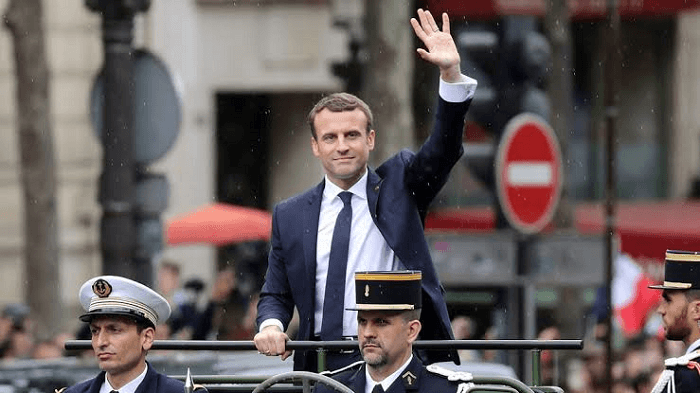
Parliamentary democracy and constitutional diarchy both apply in Andorra. HE Joan Enric Vives i Siclia, Bishop of Urgell (located in the nearby Spanish town of Seu d'Urgell), and President of France Emmanuel Macron, who has served as co-princes since May 2017, are the country's heads of state. The co-princes' duties are primarily ceremonial in nature. Four-year terms are required for election to the General Council (Andorra's parliament), with half of the councilors chosen from each of the seven administrative parishes in an equal number and the other half from a single national constituency. Xavier Espot Zamora is the leader of the government (equivalent to the prime minister), and he was most recently re-elected in 2019. Democrats for Andorra, his wide centre-right coalition, first came to power in 2011 and was most recently re-elected in 2019. BelgiumBelgium is a constitutional monarchy and federal parliamentary democracy. The King or Queen of Belgium is the head of state; nonetheless, the monarchy in Belgium is merely a symbolic institution with little actual political clout. As a symbol of the nation's continuity and togetherness, the monarchy is significant in Belgium. Even though they only have a little amount of political influence, Belgium's monarchs serve as its national symbol and represent the country at significant gatherings and on the global stage. 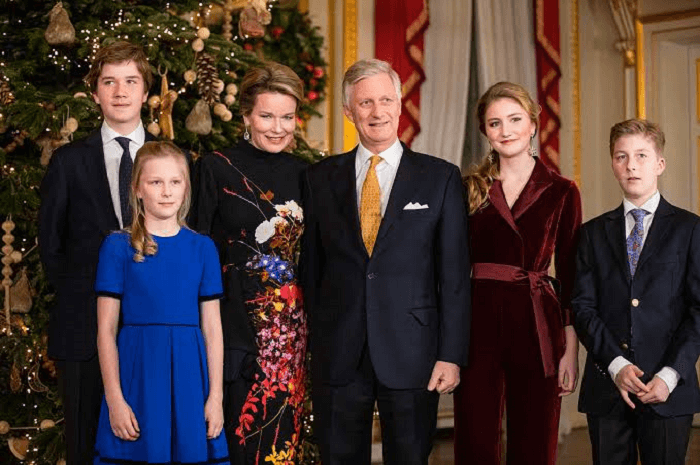
Since 2013, King Philippe has served as the monarch of Belgium. He is referred to as King of the Belgians rather than King of Belgium. He merely considers the Belgians to be his fellow citizens, not his subordinates. Another peculiarity of Belgium is that the constitutional oath must be taken before the successor to the throne may be formally enthroned after the death or abdication of the incumbent. Despite being 13 years younger than the queen he is married to, Philippe. Princess Eleonore, the Duchess of Brabant, Crown Princess Elisabeth, and the two princes Gabriel and Emmanuel are their four descendants. DenmarkThe Danish (Denmark) monarchy is a constitutional institution and a venerable office of the Kingdom of Denmark. Along with Denmark proper, the Faroe Islands, and Greenland are included in the Kingdom. The Danish Kingdom had already been established by the eighth century, and its rulers are continuously referred to as "kings" (reges) in Frankish sources (as well as certain late Frisian sources). It's possible that all of medieval Denmark's major provinces were incorporated in the Kingdom during King Gudfred's administration in 804. 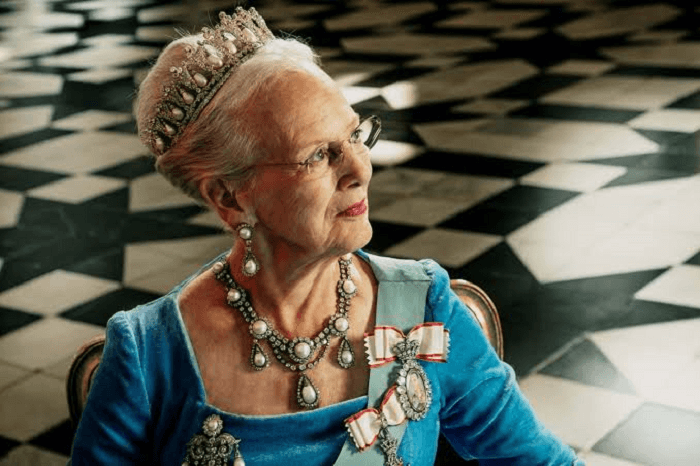
In the 10th century, the Viking monarchs Gorm the Old and Harald Bluetooth created or reunified what is now the Kingdom of Denmark. Initially an elected monarchy, it didn't become hereditary until Frederick III's reign in the 17th century. When the first democratic constitution, which largely replaced the previous absolutist one, was written in 1849, a fundamental shift toward a constitutional monarchy took place. Originally from Schleswig-Holstein in present-day Germany, the ducal House of Gl�cksburg is a branch of the House of Oldenburg, and the current Royal House is a branch of that as well. The kings of Norway, Great Britain, and the previous monarch of Greece were all direct male descendants of the House of Gl�cksburg. The constitutional nature of the Danish monarchy means that the Constitution of Denmark establishes and regulates the monarch's function. The monarch's royal reserve powers, which are only utilized in practice in accordance with legislation passed by Parliament or within the bounds of convention, continue to be the ultimate executive authority over the government of Denmark, according to the constitution. In reality, the monarch's powers are constrained to nonpartisan duties like presenting awards and formally choosing the prime minister. The monarch and members of his or her immediate family carry out a number of official, ceremonial, diplomatic, and representative tasks. LiechtensteinThe constitutional system of governance in Liechtenstein is a monarchy, wherein a hereditary sovereign serves as the country's head of state. Prince Hans-Adam II is the reigning head of state. The House of Liechtenstein is descended from Liechtenstein Castle in Lower Austria, which the family owned from at least 1140 to the thirteenth century and from 1807 onwards. The sovereign principality was named after the family in 1719. It is the last surviving monarchy in Europe that adheres to rigorous agnatic primogeniture. The degree of kinship (between men and females) under agnatic primogeniture, also known as patrilineal primogeniture, is established by tracing related descent from the closest ancestral lineage through male predecessors. Prince Hans-Adam II has served as the country's head of state since 1989. August 2021 saw Marie, his wife, pass away. Alois, the eldest of the monarch's four children and heir to the throne, is wed to Crown Princess Sophie of Bavaria. 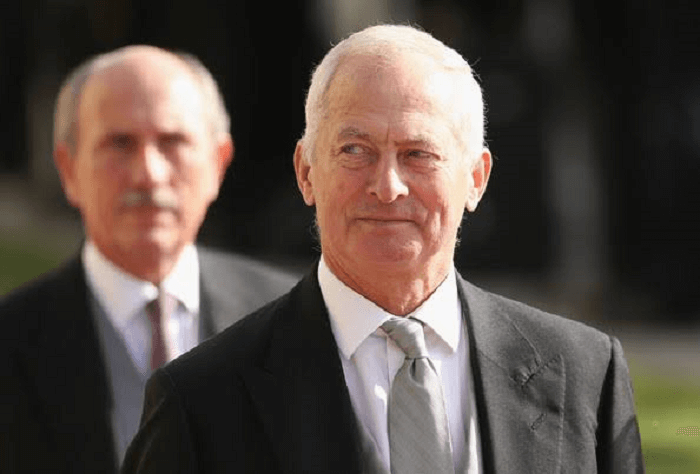
The prince of Liechtenstein is endowed with a wide range of authority, including the right to veto legislation, the ability to select judges, the right to remove the government or ministries, and the right to hold referendums. Prince Hans-Adam II proposed a referendum in 2003 to change certain provisions of the Constitution, expanding the monarch's power by granting him the ability to veto legislation on the one hand, and guaranteeing the people's right to vote to end the monarchy at any time without being subject to a princely veto on the other. At the same time, the right of the parishes that comprise the principality to secede was acknowledged. LuxembourgThe Luxembourgish monarchy appoints the grand duke as head of state. The area of the previous Duchy of Luxembourg was used to build Luxembourg, which became a grand duchy on March 15, 1815. Up until 1890, the House of Orange-Nassau had a personal union with the Kingdom of the Netherlands. Since 1815, nine kings, including the current Henri, have reigned over Luxembourg, the only sovereign Grand Duchy in the whole globe. His Royal Highness Grand Duke Henri, Prince of Nassau and Prince of Bourbon-Parma, is the ruler of the nation. 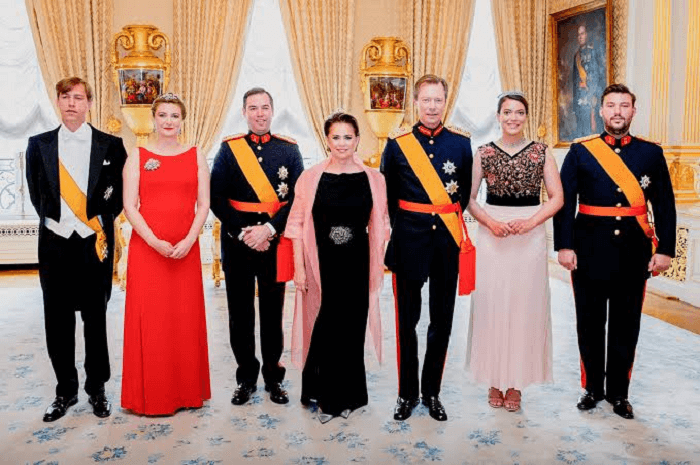
The grand duke's role is established under Luxembourg's constitution. The grand duke serves as the nation's head of state, its unifying emblem, and its protector of independence. He uses his executive authority in conformity with the nation's laws and the constitution. Although he is not able to pass laws, he can declare them. In accordance with the adage "The Grand Duke rules, but he does not govern," he has the authority to dissolve parliaments and select ministers but bears no political responsibility. SpainThe Crown (La Corona) is the official title of Spain's monarchy, often known as the Spanish monarchy , which is a constitutional institution. The current monarch, his or her family, and the institution known as the royal household, which aids and abets the monarch in carrying out his or her responsibilities and prerogatives, make up the monarchy. The current Spanish monarchy is composed of King Felipe VI, Queen Letizia, and their daughters Leonor, Princess of Asturias, and Infanta Sofia. 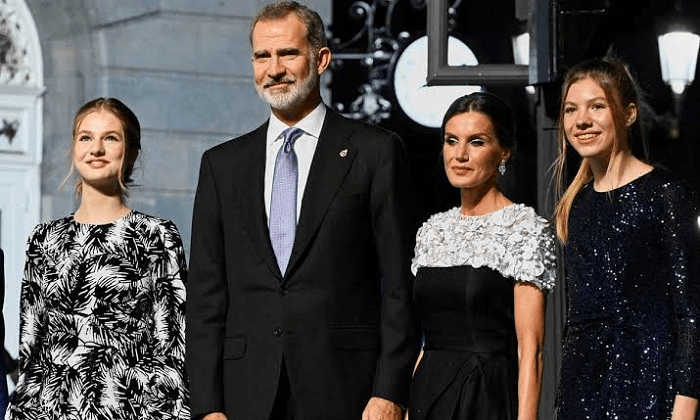
The King plays no significant part in the Government, as is the case in all constitutional monarchy. His primary duty is to serve as the State's representative, not the people's, as stated in the Spanish Constitution: "The king is the Head of the State, representation of its unity and permanence, arbitrates as well as moderates the normal operation of institutions, assumes the highest role of the Spanish State in international relations, particularly with the nations of its historical community, and executes the duties specifically attributed to him by the Constitution and the laws." According to the constitution, the king is the head of state and the supreme commander of the Spanish Armed Forces. United KingdomIn the United Kingdom, monarchy is the most traditional form of governance. A monarch is the head of state under a constitutional monarchy. Constitutional monarchies, such as the British Monarchy, are well-known. Accordingly, although The Sovereign is Head of State, an elected Parliament is the only body with the authority to draft and adopt laws. The Sovereign still has a significant role to play in the country's affairs even though they no longer hold political or executive positions. 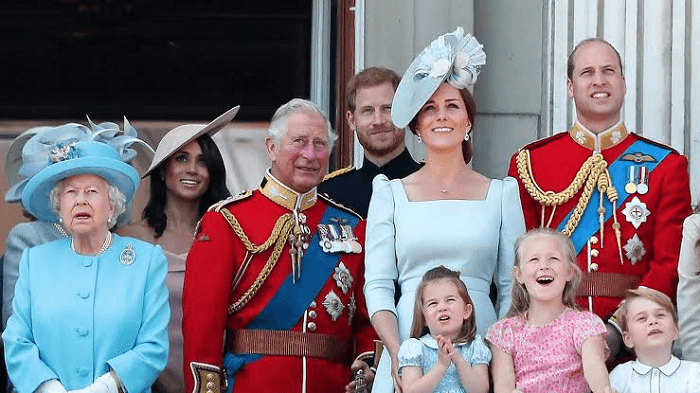
The Monarch, as Head of State, performs constitutional and representative obligations that have evolved through a thousand years of history. In addition to these State obligations, The Monarch also serves in a less official capacity as "Head of Nation." The Sovereign serves as a focal point for national identity, unity, and pride; it imparts a feeling of stability and continuity; it formally acknowledges success and greatness; and it promotes the notion of volunteerism. The Sovereign's closest family members assist them in all of these responsibilities. Vatican CityVatican City is regarded as the world's tiniest nation. It is a UNESCO World Heritage Site that is situated inside Rome, the capital of Italy, and has an area roughly equal to 60 soccer fields. The Pope, who is in charge of both the Catholic Church and its government, is its head of state. 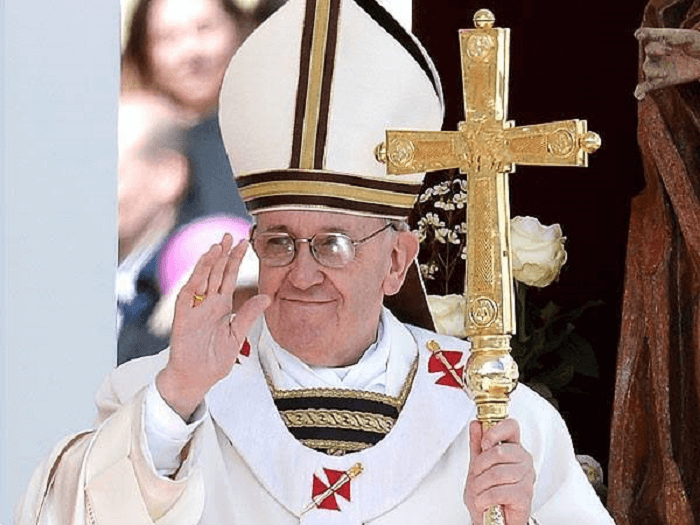
Since 2013, Pope Francis has served as the leader of the Catholic Church. The system of governance is what is known as a "elective monarchy," meaning that the cardinals elect the head of state and that only death or resignation can result in the loss of that position. The pope possesses judicial, executive, and legislative authority. As a result, Vatican City is an absolute monarchy and lacks the separation of powers found in other democratic institutions like a parliament. 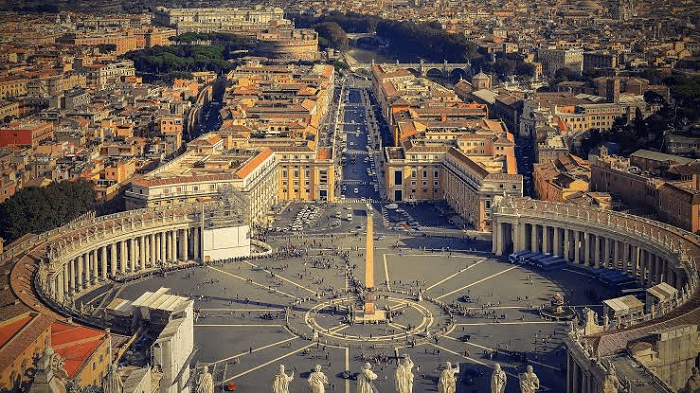
Numerous governmental operations are carried out by the Vatican in much the same way as in any other nation. They produce passports, license plates, and euro coins in addition to printing stamps. Even the government runs media organizations. Officially classified as a government broadcaster, Vatican Media is the country's main radio and television outlet. Live broadcasting, show creation, and assistance with external media interactions are all features of the service. Although there is no television station in the Vatican, Vatican Media airs online and on catholic stations throughout Europe. Vatican Media is charged with making it easier for Catholicism to spread throughout the world. 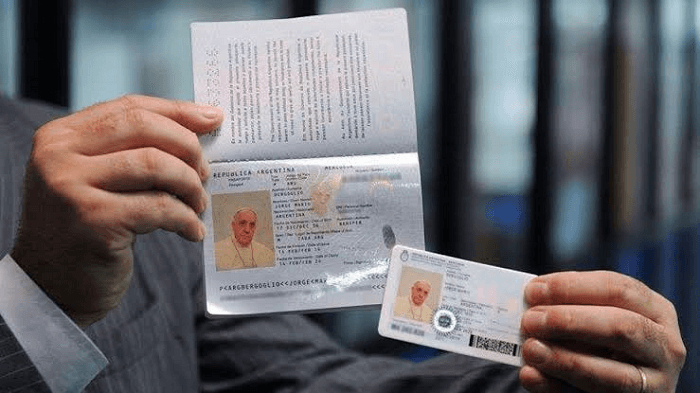
Taxation is one crucial aspect of administration that the Vatican is lacking. There are no taxes, import or export limitations, or customs fees in the city. Income tax is not paid by employees, and imports are not subject to customs taxes. How does the Vatican maintain its financial stability without taxes? The Vatican receives funding via the purchase of stamps, coins, trinkets, and admission tickets. With 5 million annual visitors and the cheapest entrance tickets costing 16 euros apiece, the Vatican is raking in a healthy 80 million each year. Furthermore, the paycheque for clergy members who reside in the Vatican is quite low. When they become priests, a large number of them accept poverty vows. For his services, the Pope receives no compensation at all! Advantages of MonarchyThe transition of power in a monarchy is simple and doesn't require a lot of time or expensive resources. In a monarchy, transferring power is quite simple. The sovereign will appoint assistance and be able to resume his duties right away even if he decides to step down from his position. This narrows the power imbalance inside the government, and because it is predictable, it also lessens societal uncertainty. 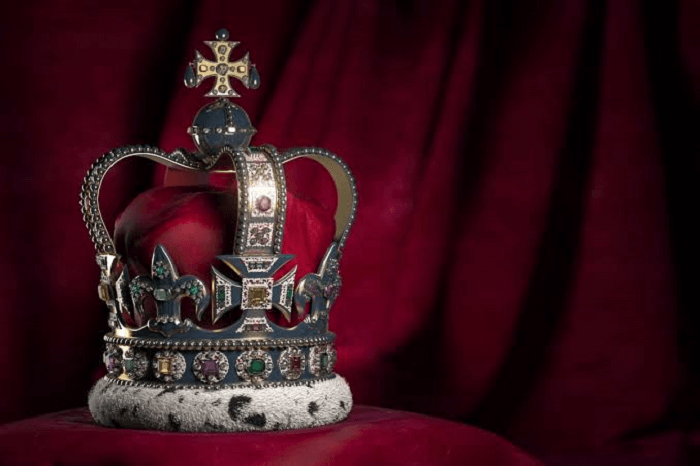
Running a monarchy is less expensive. The monarchy's laws are frequently seen as being extremely valuable. The most formidable armies and defensive positions have frequently been found in monarchies. This is essential since the individuals who are in charge of the government and the country have the throne's power. Because choices are decided by those in power, which is often a small group of people, monarchy may prove a more effective type of governance. Disadvantages of MonarchyThe local tax laws support the monarchy. In virtually every case of this form of governance, the taxpayers are required to cover the monarch's costs while he is in power. Due to the fact that only families or groups were allowed to join the monarchy's ruling class, it is simple to change the course of events under a monarchy. However, individuals find it challenging to influence social change. Within the monarchy, secession is not a guarantee of capability. 
The ruler's competence is not assured just because the line of succession is established earlier. It's possible that some leaders won't want to accept the tasks put in their path. In monarchies, racial prejudice is more pronounced. Socioeconomic classes are present in all communities. Wealth and power are closely intertwined, and monarchies often make them more evident. There is no possibility for influence without wealth. In a NutshellIn a monarchy, absolute power is vested in a single individual known as the monarch, who remains in office until his or her demise or abdication. While there have been elective monarchies, in which the monarch holds the throne after being elected, the papacy is occasionally referred to as an elective monarchy. Monarchs typically hold and attain their throne through the process of hereditary succession (e.g., they were connected, often the son or daughter of the previous monarch). 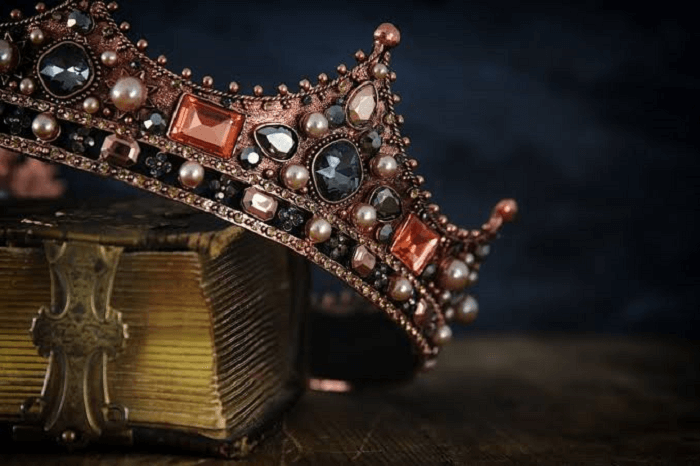
Additionally, there have been hereditary tyrants who weren't regarded as kings, such as the Dutch stadtholders. Many kings and queens have used theological justifications, such as being God's choice, to justify their reign. Courts are frequently seen as a crucial component of monarchs. These surround the kings and offer nobility and the monarch a space to socialize. 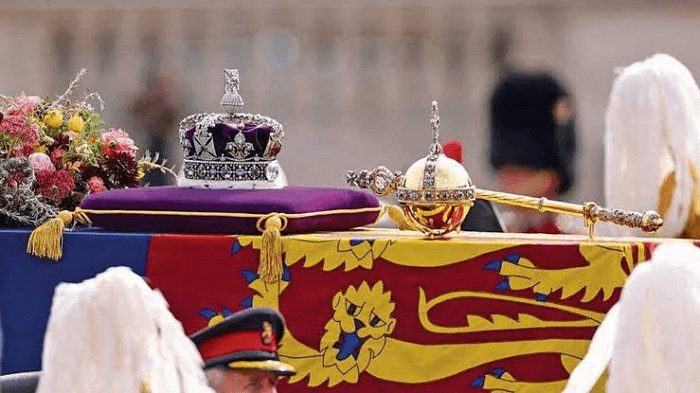
As a result, monarchy is seen as a robust and acceptable form of administration for a range of nations. Because elections in democracies are chosen by popular vote, it is possible for unqualified individuals to hold a position of power and have a lot of the country's affairs depend on them. However, under a monarchy, the successor is prepared from birth to assume the role at that time. As a result, they would already be qualified to manage a nation given their prior education and experience.
Next TopicMonetary Policy Definition
|
 For Videos Join Our Youtube Channel: Join Now
For Videos Join Our Youtube Channel: Join Now
Feedback
- Send your Feedback to [email protected]
Help Others, Please Share










